Flow and Diffusion models Part 2 - Fokker-Planck
Lecture 2 This is the most mathmatical chanllenging part of the lecture, but also covers all the missing knowledge I would like to learn, like Langevin and Fokker-Planck
1 Training goal
Review two models we learned so far
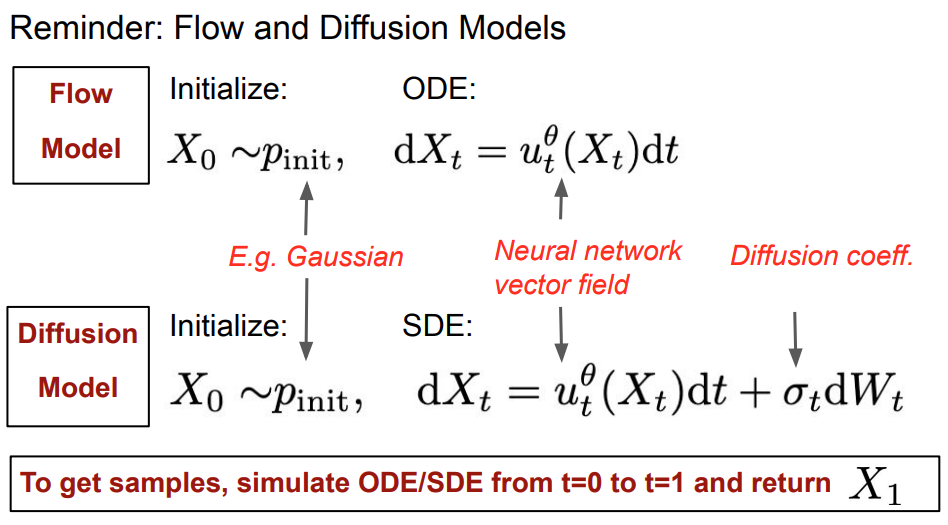 Learning goal is to find the formula for the target vector field such taht corresponding ODE/SDE convert $p_init$ to $p_data$
Learning goal is to find the formula for the target vector field such taht corresponding ODE/SDE convert $p_init$ to $p_data$
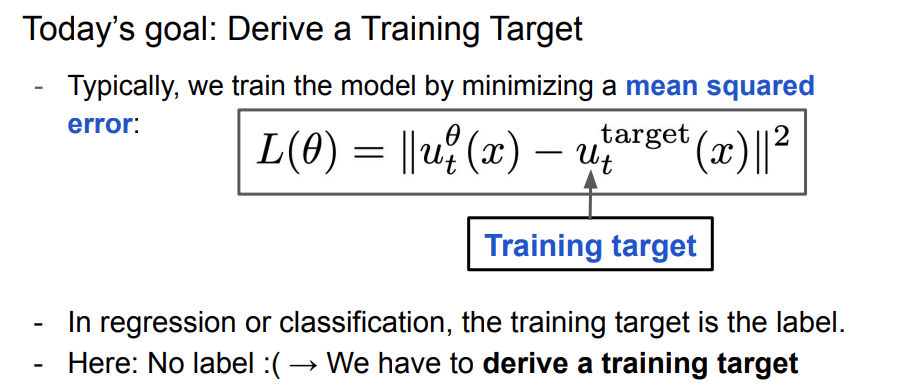
Two key concepts
- conditional: per single data point
- marginal: across distribution of all data points
2 Probability Path
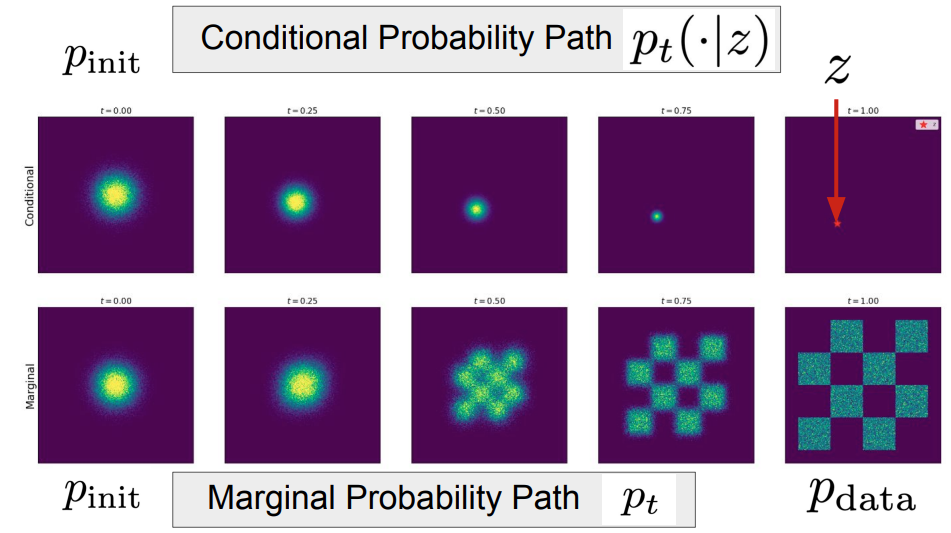 For conditional probability path
For conditional probability path
 We have a example of Gaussian prob path with noise schedule s.t
We have a example of Gaussian prob path with noise schedule s.t
 For marginal probablity path, this is a bit hard to digest. The key idea is to understand probability path as a trajectory in the space of distributions.
For marginal probablity path, this is a bit hard to digest. The key idea is to understand probability path as a trajectory in the space of distributions.
 The density $p_t(x)$ is unkonw because the integral is intractable.
The density $p_t(x)$ is unkonw because the integral is intractable.
3 Vector Field
If we simulate a ODE with a conditional vector field, then any state on the trajectory is following conditional probabilty path.
 The Gaussian example is given by
The Gaussian example is given by
 The Marginalization Trick, which can be approved by Continity equation,
The Marginalization Trick, which can be approved by Continity equation,
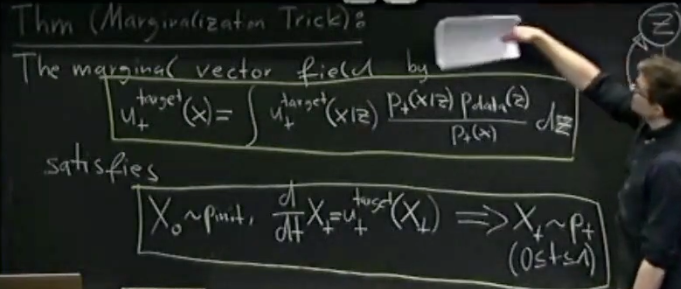
Here is the comparison of these two under ODE samples
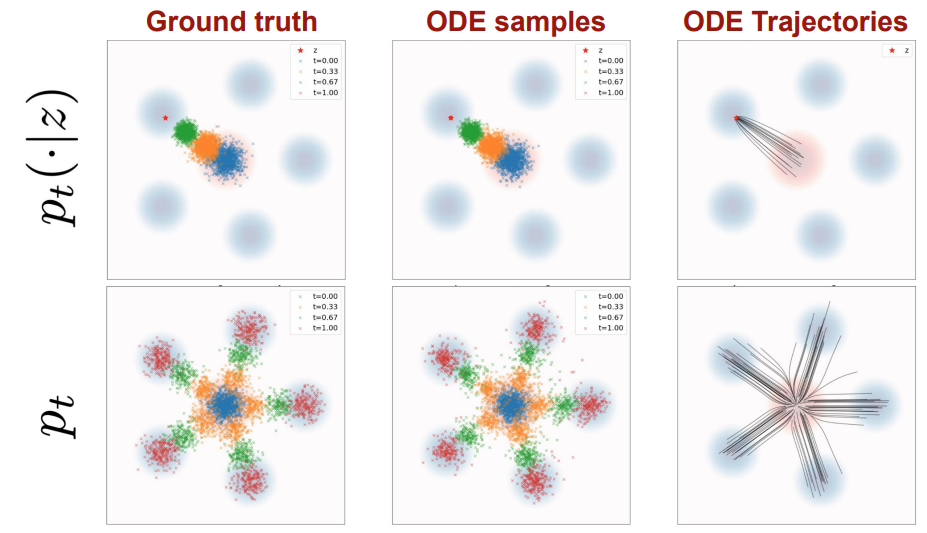
4 Continuity Equation
CE can be interpreated by the conservation of probability mass.
 From this equation, we can derive the marginalization trick
From this equation, we can derive the marginalization trick
5 Score Function
Score function is defined as the grad of the log of the density.
and marginal score can be get from conditional score
 Now we do SDE extension trick. When there is diffusion terms added in the SDE, the vector field should be adjusted accordingly, so the same condition holds as in the marginalization trick.
Now we do SDE extension trick. When there is diffusion terms added in the SDE, the vector field should be adjusted accordingly, so the same condition holds as in the marginalization trick.

6 Fokker-Planck Equation
SDE extension trick can be approved by Fokker-Planck equation, which is the SDE version of the continuity equation.
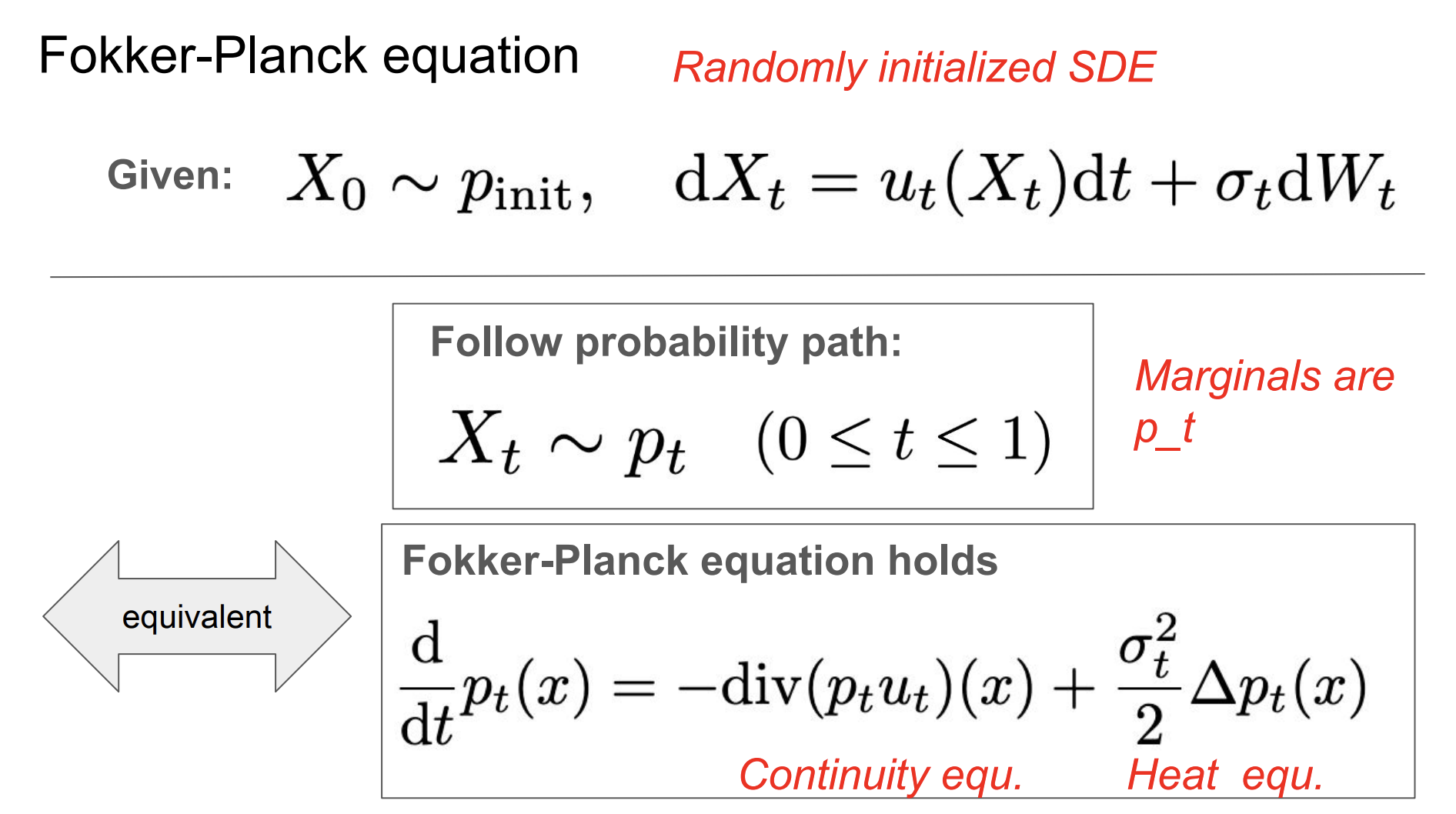 And the physical interpretation is adding heat dispersion
And the physical interpretation is adding heat dispersion
 The proof of SDE extension is a bit confusing to me. It actually starts from continuity equation, and then satisfied with Fokker-Planck equation…
The proof of SDE extension is a bit confusing to me. It actually starts from continuity equation, and then satisfied with Fokker-Planck equation…
7 Summary

